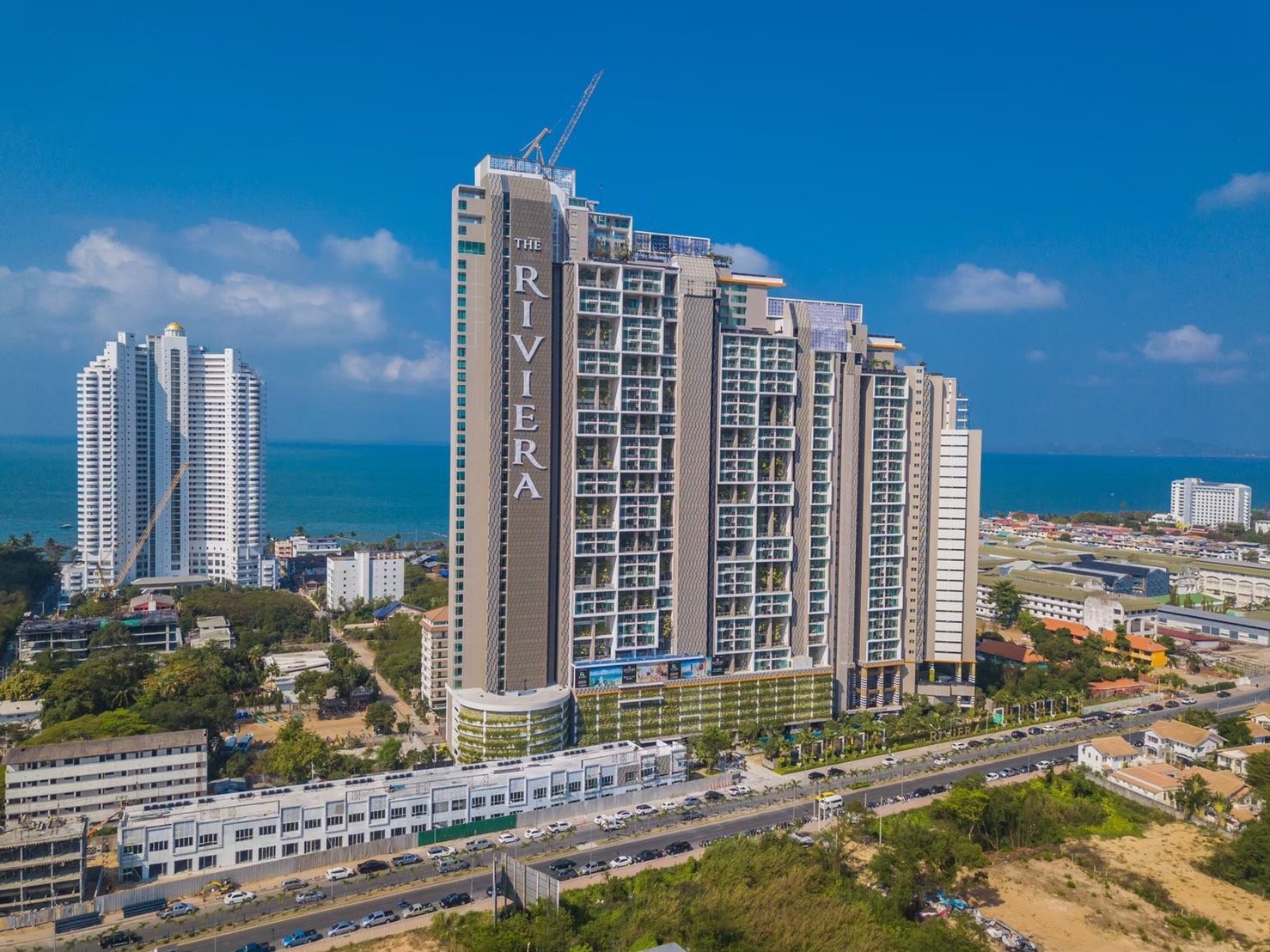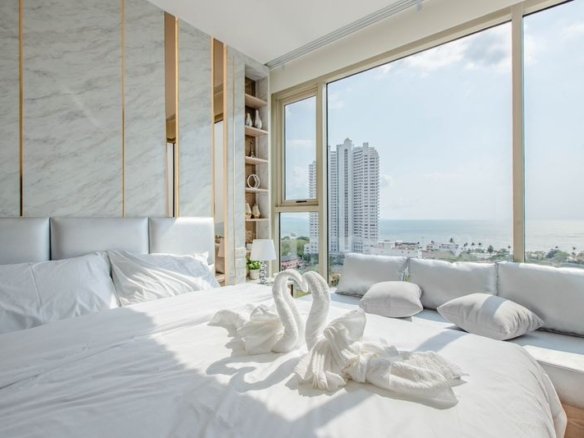Pattaya, with its irresistible blend of vibrant city life, serene beaches, and affordable living, has become a magnet for expats, retirees, and digital nomads seeking a long-term home. Renting offers unparalleled flexibility and a lower upfront commitment compared to buying, making it an ideal choice for many.
This guide provides a comprehensive overview of long-term leasing in Pattaya, covering everything from finding your ideal property to understanding your lease agreement and navigating life as a tenant.
What Qualifies as “Long-Term” Leasing in Pattaya?
In Pattaya, “long-term” typically refers to rental periods of 6 months, 1 year, or more. While short-term holiday rentals exist, long-term leases offer:
- Better Value: Monthly rates are significantly lower than daily or weekly rates.
- Stability: A fixed address for visa purposes (TM30 reporting) and personal convenience.
- Sense of Home: Allows for personalization and settling into a community.
- Legal Protections: Written and registered contracts provide stronger legal standing for terms exceeding three years.
Types of Long-Term Rental Properties Available
Pattaya’s rental market is incredibly diverse, catering to various lifestyles and budgets:
- Condominiums: The most popular choice for long-term renters, offering convenience, security, and a range of amenities (pools, gyms). Available from studios to spacious 3-bedroom units, often fully furnished.
- Houses & Villas: Ideal for families, couples, or individuals seeking more space, privacy, and gardens. These are often found in quieter residential areas, particularly in East Pattaya or around Jomtien.
- Townhouses/Shophouses: A middle-ground option, providing more space than a condo but often less private than a detached house. Shophouses are common for those looking to combine living with a small business.
Finding Your Long-Term Rental in Pattaya
- Work with a Reputable Real Estate Agent (Recommended):
- Local Expertise: Agents like Realestate-Pattaya.com possess in-depth knowledge of neighborhoods, market trends, and available listings, including those not widely advertised.
- Time-Saving: They pre-screen properties based on your criteria, saving you countless hours.
- Negotiation Power: Experienced agents can often negotiate better rental rates and terms on your behalf.
- Legal Review & Support: Crucially, they can guide you through the complexities of Thai rental contracts and ensure your interests are protected.
- Dispute Resolution: In case of issues, a good agent acts as an intermediary.
- Online Property Portals: Websites with extensive listings can give you a broad overview of the market.
- Direct from Landlords/Word of Mouth: While possible, proceed with extreme caution and always get independent legal advice before signing anything.
Key Considerations Before You Sign
Before committing to a long-term lease, keep these points in mind:
- Budget Beyond Rent: Factor in monthly rent, utilities (electricity, water, internet), common area fees (especially for condos or houses in gated communities), and any potential maintenance costs.
- Location, Location, Location:
- Central Pattaya: For vibrant nightlife, shopping, and city amenities.
- Jomtien: More relaxed, beach-focused, popular with families and retirees.
- Pratumnak: Upscale, quieter, known for luxury condos and sea views.
- East Pattaya: Ideal for houses, villas, and a suburban, family-friendly lifestyle.
- Naklua: Offers a more local Thai experience, quieter, with some high-end properties.
- Furnishing Status: Most condos come fully furnished. Houses might be partially furnished or unfurnished, giving you more freedom to personalize.
- Lease Term & Renewal: Standard leases are 1 year. Longer terms (e.g., 2-3 years) can be negotiated, often for better rates. Understand the renewal process—while often possible by new agreement, it’s not guaranteed.
- Included vs. Excluded Costs: Clarify what the monthly rent covers (e.g., does it include common area fees, or just the base rent?). Utilities are almost always extra.
- Building/Community Rules: Especially for condominiums and gated communities, understand rules on pets, renovations, noise, and use of common facilities.
- Pet Policies: If you have pets, finding a pet-friendly rental can be challenging in Pattaya, as many landlords or buildings prohibit them. Ensure this is explicitly stated and agreed upon in the contract.
- Appliance Check: Confirm all major appliances (A/C units, water heater, stove/oven if provided) are in working order. Note that not all Thai apartments come with a cooking stove/oven.
The Leasing Process: A Step-by-Step Guide
- Property Viewing & Selection: Work with your agent to view shortlisted properties. Take photos and videos of the property’s condition.
- Offer & Negotiation: Once you find “the one,” your agent will help you make an offer, negotiate the rental price, lease term, and any specific conditions (e.g., minor repairs, additional furnishings).
- Reservation Deposit: To take the property off the market, you’ll typically pay a reservation deposit (e.g., 10,000 – 30,000 THB). This is usually non-refundable if you back out without cause. Ensure terms are clear.
- Lease Agreement Review (CRUCIAL!):
- Engage a Lawyer: For long-term leases (especially those over 3 years, which require Land Department registration), it’s highly recommended to have an independent Thai lawyer review the lease agreement.
- Key Clauses to Scrutinize:
- Rental Amount & Payment Schedule: Clearly defined, including any late payment penalties.
- Lease Term & Renewal: Exact start and end dates. Any renewal options must be clearly stated, but remember they are by new agreement, not automatic (as per recent Supreme Court rulings for 30-year leases).
- Security Deposit: Amount (typically 1-2 months’ rent), conditions for refund, and timeline for return (e.g., within 30 days of lease end).
- Maintenance & Repairs: Who is responsible for what (e.g., landlord for structural, tenant for minor wear & tear, who pays for AC servicing?).
- Early Termination Clause: Conditions and penalties if you need to break the lease early.
- Inventory List: A detailed list of all furniture, appliances, and fixtures. This is vital!
- Sub-leasing/Transferring Rights: If permitted.
- Utilities: How they are billed and paid.
- Bilingual Contract: Insist on a contract in both Thai and English if you are not fluent in Thai. Both versions should be legally binding, or at least the Thai version is the definitive one.
- Signatures & Copies: Ensure both you and the landlord sign every page, and each party receives a signed copy. Get receipts for all payments.
- Payment & Move-in:
- Typically, you’ll pay the first month’s rent plus the security deposit (usually equivalent to 1-2 months’ rent) before receiving the keys.
- Inventory Check: On move-in day, meticulously check the property against the inventory list. Document any existing damage or discrepancies with photos and videos. This is your best defense against deposit disputes later.
Living in Your Rental Property & Moving Out
- Utility Connections: Ensure utilities (electricity, water) are in your name (or transferred to your name by the landlord) to avoid inflated charges. High-speed internet is readily available.
- Maintenance: Report any significant issues promptly to your landlord or agent.
- TM30 Reporting: Your landlord is legally required to report your stay to Thai Immigration using a TM30 form within 24 hours of your arrival. This is crucial for your visa extensions and future immigration processes. Follow up with your landlord/agent to ensure this is done. If not reported, you may face issues when applying for visa extensions.
- Security Deposit Refund: At the end of your lease, conduct a joint inspection with the landlord/agent. The deposit should be returned after deducting for any damages (beyond normal wear and tear) and unpaid utility bills. Having your initial photos/videos is key here.
Conclusion: Renting Smart in Pattaya
Long-term leasing in Pattaya offers a fantastic way to experience this vibrant city, whether you’re starting a new life, enjoying retirement, or testing the waters before buying. While the process is generally straightforward, being informed about lease terms, costs, and legal requirements is paramount.
Partnering with a trusted local real estate agent can significantly smooth your journey, ensuring you find the perfect home and navigate the process with confidence.
Ready to find your long-term rental in Pattaya?
Contact Realestate-Pattaya.com today to explore our extensive listings and receive expert guidance tailored to your leasing needs.




Join The Discussion